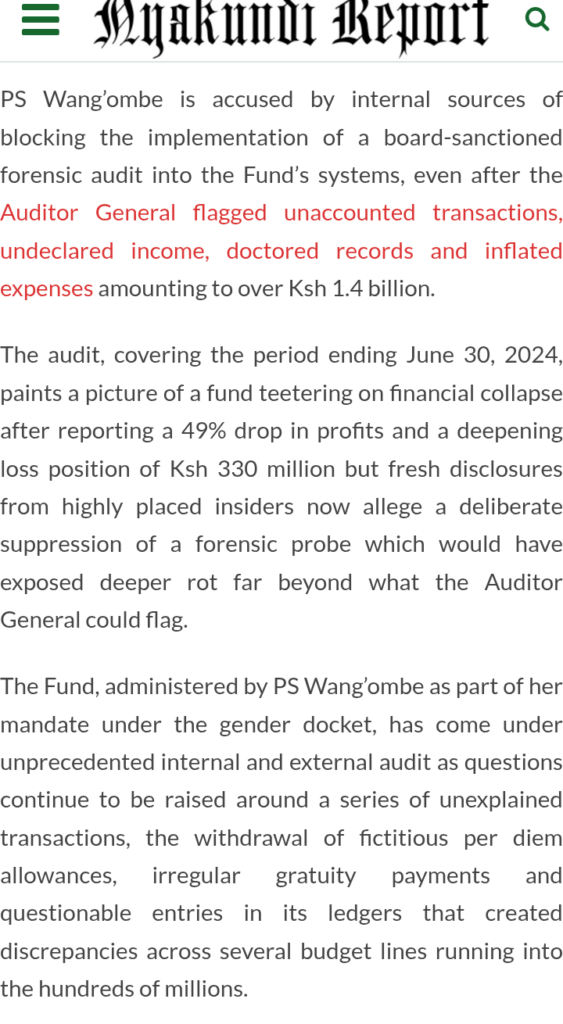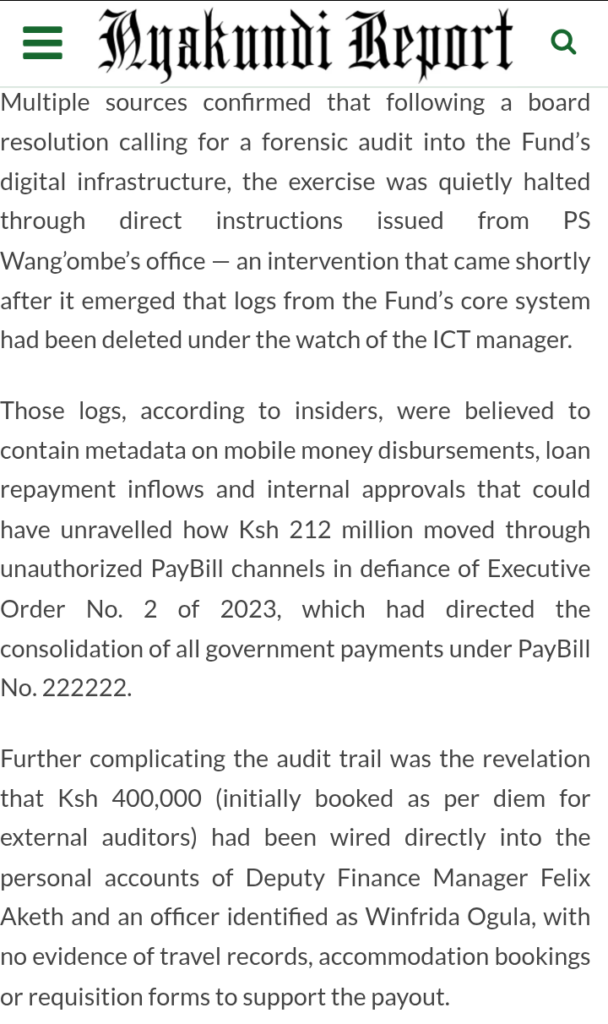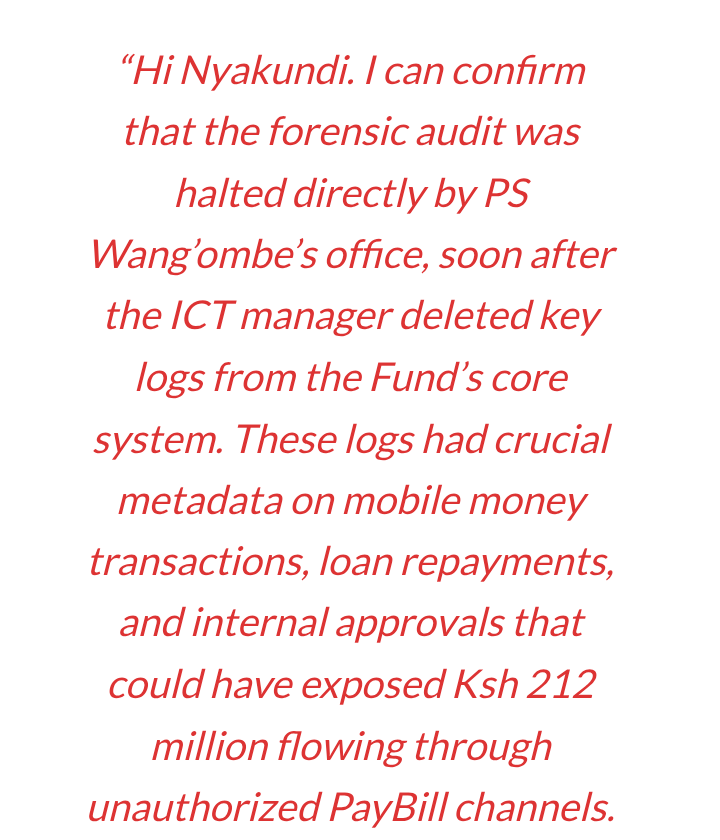Cyprian Is Nyakundi has exposed serious allegations against Kenya’s Women Enterprise Fund (WEF), which could undermine the credibility of an institution meant to support women entrepreneurs.
The claims suggest widespread financial mismanagement, cover-ups, and unauthorized transactions that involve senior officials, including PS Anne Wang’ombe, the Public Service Principal Secretary overseeing the fund. These reports have raised alarm bells about potential losses exceeding Ksh 1.4 billion, with digital fraud and discrepancies in key financial areas threatening to shake public trust in the government’s commitment to transparency.
The Women Enterprise Fund, intended to empower women by providing access to capital and other resources, has instead become the subject of troubling investigations.

Senior officials are accused of blocking audits that could have exposed deeper financial irregularities. PS Wang’ombe is specifically alleged to have intervened to prevent a full forensic audit, which could have uncovered hidden losses and fraudulent transactions.
Reports indicate that audits flagged unaccounted funds and inflated expenses amounting to over Ksh 1.4 billion, but these findings were allegedly suppressed, possibly to protect those involved in the misconduct.
One of the most alarming issues pointed out in the report is the movement of Ksh 212 million through unauthorized PayBill channels, in direct violation of Executive Order No. 2 of 2023, which mandates all government payments to be consolidated under one unified PayBill.
This breach suggests that individuals within the fund deliberately bypassed regulatory controls, potentially for personal gain.
Another worrying discovery is a payment of Ksh 400,000 to personal accounts of two officials without any documentation or legitimate reason for the disbursement, further fueling suspicions of financial mismanagement.
The reports also mention discrepancies in WEF’s computer maintenance budget, which allegedly had Ksh 59 million that could not be accounted for. In addition, Ksh 71.3 million in loans issued to women’s groups has reportedly gone unrecovered, highlighting severe lapses in the fund’s loan management systems.
These failures to manage and track finances properly have raised serious concerns about the fund’s integrity and its ability to fulfill its purpose of supporting women’s economic empowerment.

Despite these alarming revelations, PS Wang’ombe has not publicly addressed the allegations.
Whistleblowers have accused her of blocking the forensic audit that could have exposed the full extent of these issues. These insiders have claimed that key digital logs, including metadata from mobile transactions and loan repayments, were deleted to prevent uncovering the scale of the corruption.
A whistleblower stated that after the intervention to halt the audit, the ICT manager deleted crucial logs that could have traced the movement of Ksh 212 million through unauthorized PayBill channels.
The potential ramifications of these allegations are significant. The Women Enterprise Fund has been a crucial tool in Kenya’s efforts to empower women, and such mismanagement undermines not only the fund’s objectives but also the broader fight against corruption in the public sector.

Calls for independent investigations are growing louder, as stakeholders demand transparency and accountability from those responsible for overseeing these funds.This scandal, if proven true, represents a massive betrayal of trust, particularly for the thousands of women who depend on WEF to access financial support for their businesses.
The failure to properly manage these resources risks not only the future of the Women Enterprise Fund but also the integrity of Kenya’s public financial management system.


